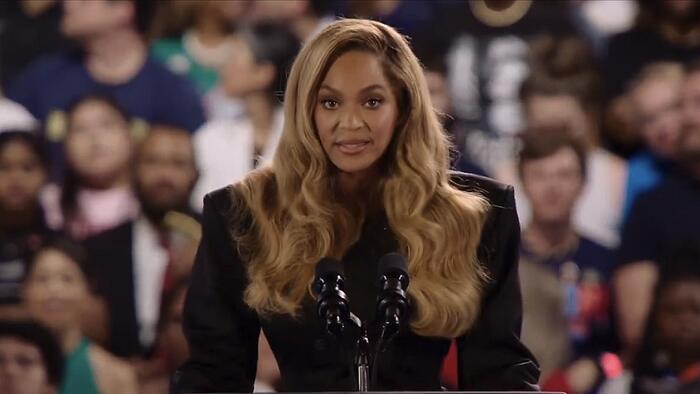The recent rally featuring Vice President Kamala Harris in Houston quickly turned from a highly anticipated event into a spectacle of discontent, as attendees were promised a Beyoncé concert that ultimately did not materialize. Organizers promoted the event with significant hype, which led to the expectation that Beyoncé would perform, resulting in a massive turnout of around 30,000 people, with over a million attempts made to secure tickets. Fans were left outraged and disappointed when Beyoncé made a brief appearance, delivering an almost inaudible speech instead of the concert they had envisioned. The event soon spiraled into chaos, with many attendees expressing their frustrations vocally.
The distress among the crowd became palpable as they were confronted with poorly managed audio feeds, leading to widespread complaints about the inability to hear Beyoncé’s speech. Critics questioned the event’s organization, noting the failure to provide clear audio, which further exacerbated the attendees’ disappointment. As the evening progressed, the atmosphere turned confrontational, and people began to heckle Harris with shouts of frustration over the absence of a musical performance. Secret Service agents visibly struggled to maintain order as the crowd’s patience waned.
In the midst of this turmoil, media coverage began to frame the event as a battleground between Trump supporters and Harris’s campaign. Harris’s attempts to quell the disarray included a clumsy reference to “showing them the way to the smaller rally down the road,” which only added fuel to the public’s dissatisfaction. The noisy protests were characterized as opposing political factions clashing rather than a united response to feeling misled about the event’s nature. This mischaracterization of the hecklers demonstrated a disconnect from the reality that many were simply fans disillusioned by broken promises.
As the rally progressed without the expected performance, the dissatisfaction led to mass exits, with many people leaving in visible anger. Some individuals even took to social media to share their own experiences, noting that attendees began walking out immediately after Beyoncé concluded her remarks. This mass exodus showcased just how significant the letdown was, as people came to hear music and were left feeling cheated by the event’s misrepresentation.
Irony laced the situation further when it was revealed that the actual entertainment for the evening was Willie Nelson, a legendary country musician, who seemed to stand in stark contrast to the excitement surrounding Beyoncé. Attendees who anticipated a pop-performance atmosphere were instead taken to a country music setting, culminating in a comedic but frustrating disconnect. Social media reflections on the event added to the wave of dissatisfaction and disbelief about how a highly touted event could falter in such a dramatic fashion.
Historically, this incident wasn’t the first time that expectations around entertainment and political rallies had misaligned. It mirrors previous events where speculation about celebrity involvement led to fan outrage over unfulfilled promises. The fallout from the Harris rally has sparked conversations about the importance of clear communication and realistic expectations in political campaigning, especially when leveraging celebrity power. Given the heightened anticipation for a performance that never materialized, the incident underscores a growing need for political events to remain tethered to genuine community engagement rather than mere spectacle.

